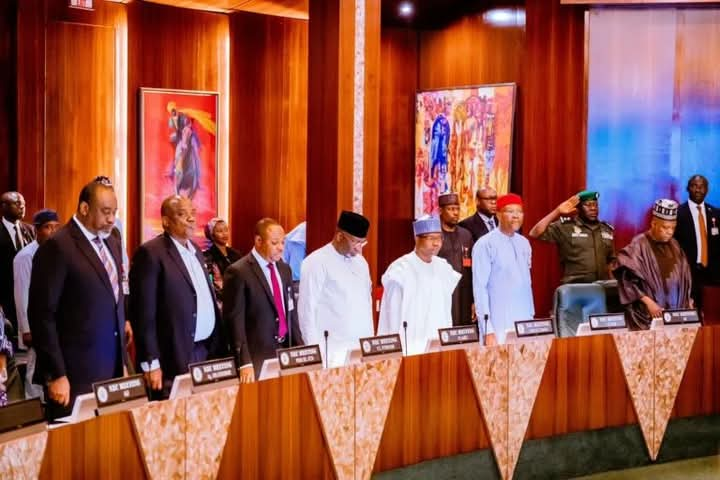The National Economic Council (NEC) has called for a complete rethink of Nigeria’s traditional livestock rearing practices.
NEC cited the urgent need to adopt modern, sustainable systems to curb ongoing conflicts between farmers and herders.
The position was taken during NEC’s meeting on Thursday at the Presidential Villa, Abuja, chaired by Vice President Kashim Shettima.
The session followed renewed outbreaks of deadly violence in parts of the country, including Plateau, Benue, and Kwara States, where dozens of residents were recently killed in attacks by suspected armed groups.
Speaking after the meeting, Bayelsa State Governor, Douye Diri said the council agreed that the outdated model of animal husbandry must be replaced with more structured and modern approaches.
READ ALSO: Shettima chairs NEC as Rivers sole administrator attends
“We can no longer afford to operate in the past. Council strongly believes that modernising livestock production is not just necessary—it’s long overdue,” Diri stated.
NEC attributed the persistence of farmer-herder clashes to the current nomadic system of livestock movement, which continues to drive land-use disputes and escalate tensions in agrarian communities.
Governor Diri also pointed to the recent establishment of the Federal Ministry of Livestock Development as a positive step.
He added that the ministry had unveiled a strategic plan—the Accelerated Livestock Development and Growth Strategy—aimed at transforming the sector into a $70–$90 billion industry by 2035.
Violence between pastoralists and farming communities has become a recurring crisis in Nigeria’s Middle Belt, where disputes over land, identity, and dwindling resources have grown more volatile.
READ ALSO: Shettima calls for interagency synergy to drive business reforms
In Plateau State alone, recent attacks left more than 100 people dead in just one week, prompting local officials to describe the carnage as ‘genocide’ allegedly orchestrated by terrorist networks.
While Plateau authorities blamed the killings on external actors, some analysts argue that inflammatory rhetoric often oversimplifies the complex, localised nature of the conflict.
Root causes include competition over land, weak state presence, and unresolved grievances between ethnic and religious communities.
The Fulani, who dominate Nigeria’s nomadic herding population, are frequently at the centre of these tensions.
In regions like Benue and Plateau, predominantly Christian farming populations have accused Fulani groups of launching coordinated attacks.
However, Fulani leaders say their communities are also targets of retaliatory violence and discrimination.
Long-standing land disputes, aggravated by climate change, population growth, and political rivalries, continue to fuel unrest.
Limited access to pasture and water has turned once-shared resources into flashpoints for bloodshed.
Security experts warn that without stronger governance, better land-use policies, and sustainable livestock practices, these conflicts will persist.
NEC’s latest push for reform signals a recognition at the highest levels of government that Nigeria’s agricultural future depends on breaking this cycle of violence.

